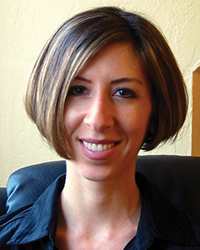What Do We Want Our Scientific Discourse to Look Like?

 We have seen a lot of changes in the field of psychology over the last few years, including changes to the way we talk about our science. New developments in technology have opened opportunities for faster, more flexible, and more broadly accessible communication between scientists than ever before. Journal articles, conference symposia, and in-person conversations about research and research methods now are complemented by numerous online blogs, Facebook discussion groups, email chains, and Tweets. As we embrace the possibilities afforded by these new modes of communication, it is perhaps an ideal time to ask: What do we want our scientific discourse to look like? Going forward, how can we not only build a better science, but also build better ways of talking about science?
We have seen a lot of changes in the field of psychology over the last few years, including changes to the way we talk about our science. New developments in technology have opened opportunities for faster, more flexible, and more broadly accessible communication between scientists than ever before. Journal articles, conference symposia, and in-person conversations about research and research methods now are complemented by numerous online blogs, Facebook discussion groups, email chains, and Tweets. As we embrace the possibilities afforded by these new modes of communication, it is perhaps an ideal time to ask: What do we want our scientific discourse to look like? Going forward, how can we not only build a better science, but also build better ways of talking about science?
I posed this question recently on PsychMAP, a lightly moderated Facebook discussion group devoted to discussions of psychological methods and practices with over 4,000 members from around the globe. Here are some of the themes that emerged.
1. Focus on the ideas, not the person.
Several contributors emphasized the importance of focusing scientific discourse on ideas rather than on individuals. Simine Vazire of the University of California, Davis, wrote (and many agreed) that she wishes “we would judge scientific claims more on the basis of the strength of the evidence or of the arguments than on who the author/speaker is. (How social media helps/hurts that goal is something we could debate all day, but I’d personally rather focus more on how we can reduce the influence of status bias in our scientific discourse, online and offline, in journals and in more informal settings. And I say that as someone who is a beneficiary of this bias.)”
Richie L. Lenne of the University of Minnesota added, “We would serve each other, and science as a whole, better if we treated critique and communication of science as an open and humble process of discovery and improvement. This is easier said than done. Criticisms of the science are often construed as criticisms of the scientist. Even when we, as scientists, appreciate the criticism and recognize its scientific value, it still evokes concerns that others will lose trust in us and in our research. It is no wonder people are distressed by methodological criticism. However, focusing our discourse on methodology and evidence, with more awareness of how tone and context influence others’ perceptions of the scientist whose work is under the microscope, will help ensure healthy development of our science.”
2. Promote inclusivity by attending to power.
If we want our scientific discourse to be inclusive, we need to pay careful attention to power dynamics. Rickard Carlsson of Linnaeus University, Sweden, wrote, “I think the concept of power is important. One can feel low in power in discussions because of gender, race, research position, rank of university, SES, not having English as native language and many other things. … It’s not easy to get all [of the] voices at once. Therefore, I suggest that this type of initiative [i.e., discussing what we want our scientific discourse to look like] shouldn’t be a one-time event but regularly revived and reevaluated.”
Lenne elaborated on this theme: “As a graduate student, I feel vulnerable publicly stating my thoughts on criticism and openness in science, which speaks to the climate of our discourse. It is essential that we have a communication environment in which graduate students, postdocs, and junior faculty from all backgrounds are rewarded for humbly and openly presenting methodologically sound ideas, research, and criticisms.”
An anonymous contributor added that in the best version of scientific discourse, “thoughtfully expressing scientifically based disagreement with someone who happens to be more powerful would neither … be risky for one’s career, nor [constitute] a free pool of ideas for personal use without needing to acknowledge the source or collaborate should that be warranted. Of course, that can be utopian, but at least the willingness to take all voices seriously as a default would be one step forward.”
The fact that power dynamics evolve and change over time means that they aren’t something we assess and address once — instead, we need to continually evaluate who has power and who doesn’t, who is included and who is not, and how we can work within the current context to help level the playing field. For instance, Christian S. Crandall of the University of Kansas highlighted the temporary power dynamic that can emerge when many people criticize a single individual, pointing out that “some individual posts of argument, questioning, or contradiction on their own are not uncivil, but taken as a group they can be overwhelming.”
Meanwhile, Jennifer R. Overbeck of the Melbourne Business School, Australia, wrote, “Right now, we’re seeing a transition from a system where scholars gained status and privilege (and thus power over funding, journal access, and defining ‘value’ and ‘quality’) through ferocious productivity, sexy findings, placement at top schools, and prestigious social networks to a system where previously marginalized advocates of rigor have used expertise, alliances, control of resources, and control of communications media to rapidly become powerful themselves. It’s no surprise that struggles for control and legitimacy should erupt between the ‘old guard’ and the ‘new guard.’”
But to fully grapple with the question of who has power and who does not, we need to take an even broader look. Overbeck continues, “What about those whose institutions, ranks, reputations, resources, networks, etc., leave them without power in either system? A new emphasis on quality could be of huge value in helping such scholars and their high-quality work achieve recognition. Yet a new atmosphere of confrontation and, at times, personalized attack could intimidate them and make the enterprise seem so risky that it’s safer just to withdraw. Seeing oneself as an outsider–insurgent may give rise to behavior (like social media ‘hot takes’) that are experienced very differently by those who see the behavior as an exercise of power. At some point, the revolutionaries become the establishment, and establishments have a responsibility to recognize their own power and (here) to avoid merely creating a new system of class privilege within psychology.”
Katherine S. Corker of Grand Valley State University responded, “There’s a kernel of truth in here. However, I see the new system as more meritocratic (as well as better for scientific quality). The new standards are transparent and clear, whereas in the old system only those with access (e.g., [those] who had the ear of the editor or were an editor) could be successful. Now we’re making it clear to all what the standards for quality are, which means there’s more potential for anyone willing to put the work in to meet those standards. The playing field is broadening as science opens up.”
3. Foster a spirit of cooperation, openness, curiosity, and learning.
Many people expressed the desire to see a scientific discourse that is motivated by curiosity, collaboration, openness, and a desire for constant improvement. According to Marieke van Vugt of the University of Groningen, the Netherlands, scientific discourse would ideally be “driven by openness and curiosity, rather than competition. While it is good to be critical, it is equally important to not dismiss different ideas. There should be a willingness to take dissenting voices seriously, instead of dismissing them. In addition, while methodological critiques are important, I think it is important that such critiques are not delivered with condescension. Instead, we need to recognize that the other person is probably seriously trying their best to deliver good work, but may not have learnt the techniques we are familiar with, or [may] have a different opinion about what good science is. … Honest dialogues about methods in which both parties listen to each other and take each other seriously are crucial (even if they think the other party is wrong).”
Echoing the importance of assuming good intent on the part of others, APS Fellow Roger S. Giner-Sorolla of the University of Kent, United Kingdom, noted that “civil discourse in science means assuming that everyone is trying to find the truth, that their errors are only errors, and refraining from implying other motives even if you suspect them to be true.”
Meanwhile, Carolin Schuster of the University of Passau, Germany, pointed out that “civil discourse — that is, willingness to accept feedback, openness for changing assumptions, and sharing knowledge (and data) — requires a spirit of cooperation, not competition,” and suggested that incentives for group products rather than individual products might help promote a more collaborative science.
Amy Summerville of Miami University elaborated on the importance of a collaborative approach that emphasizes learning from each other: “For me, it’s helpful to consider discussions about methods and practices as an extension of the teaching and learning I do in the other parts of my job. I think most teachers, when providing feedback to their students on their weaknesses, try to focus on the specific error and how the student can improve … rather than saying things like ‘Idiots like you are why our class discussions are so terrible.’ (At least, I certainly hope we do!) Likewise … we hope our students will try to use feedback to do better in the future and ask for help doing so, rather than try to argue point by point why their grade was totally unfair. My goal for our scientific discourse would be for each of us to be a compassionate teacher and be a teachable learner.”
Finally, Hanne M. Watkins of the University of Pennsylvania cautioned against taking an oversimplified view of the current state of the field that divides scholars into camps: “An unfortunate ‘us vs. them’ mentality seems to have developed, with many on both sides contributing to the polarization. The human propensity to form groups and develop ingroup biases is pretty well established, so it’s not surprising that an ‘old’ vs. ‘new’ heuristic has developed in this context as well, with some people clearly being on one ‘side’ or another. But I’m sure there are lots of people, like me, who don’t feel comfortable ‘picking sides,’ and would rather focus on our superordinate identity as psychological scientists.”
As psychological scientists, then, let’s unite in our shared goal of constantly striving toward both a better science and a better scientific discourse. What should that discourse look like, and what’s the best way to get there? The views here offer some important ideas that are well worth considering. But of course, this discussion is and should be ongoing and constantly evolving. Let’s keep challenging ourselves to assess and improve our scientific discourse and to bring an ever-broader range of psychological scientists to the table as we do so.




